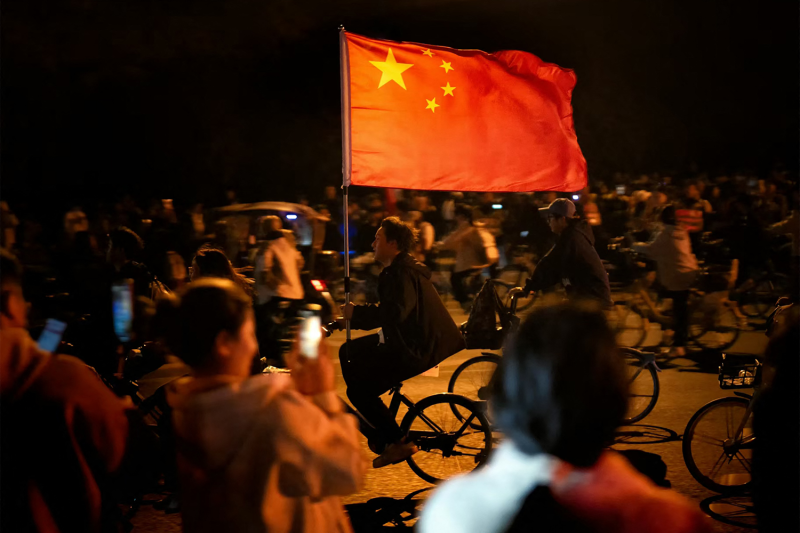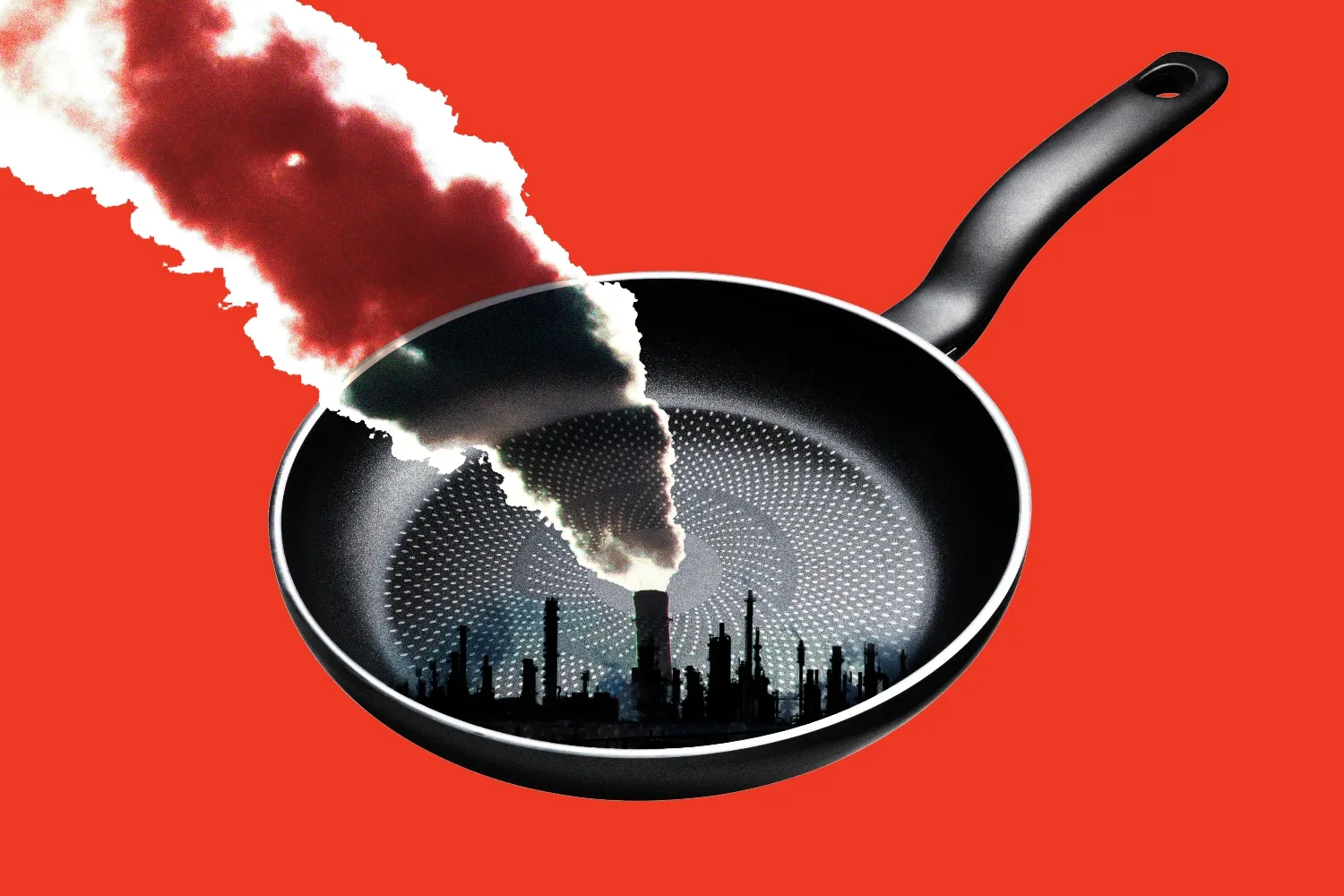Pakistan’s Generals Get a Reputational Boost

Pakistan’s Generals Get a Reputational Boost
The country’s powerful military emerges as a winner from the latest conflict with India.
Commuters drive past a billboard featuring Pakistani Army chief Asim Munir, Navy chief Naveed Ashraf, Air chief Zaheer Ahmed Babar Sidhu, and Prime Minister Shehbaz Sharif along a street in Rawalpindi, Pakistan, on May 14. Farooq Naeem/AFP via Getty Images
Welcome to Foreign Policy’s South Asia Brief.
The highlights this week: Pakistan’s military sees its political fortunes improve after the recent conflict with India, U.S.-India trade talks keep moving with the Indian commerce minister in Washington, and India announces import restrictions on goods from Bangladesh.
Welcome to Foreign Policy’s South Asia Brief.
The highlights this week: Pakistan’s military sees its political fortunes improve after the recent conflict with India, U.S.-India trade talks keep moving with the Indian commerce minister in Washington, and India announces import restrictions on goods from Bangladesh.
Munir’s Moment in the Sun
A Gallup Pakistan poll released on May 21 found that 93 percent of Pakistanis said that their view of their military improved after the country’s recent conflict with India. Meanwhile, 97 percent deemed the military’s performance to be “very good” or “good”—positive news for Pakistani Army chief Asim Munir.
After the May 10 cease-fire that ended the latest violence, Pakistanis took to the streets to celebrate, shouting pro-military slogans. The crowds included members and supporters of the opposition Pakistan Tehreek-e-Insaf (PTI) party, which has been locked in a confrontation with the military since the 2023 arrest of party leader and former Prime Minister Imran Khan.
Khan, in comments posted on his X account, even called on the nation to embrace the military, which has benefited from the rally-around-the-flag effect.
However, this outpouring of support may also seem odd, given what happened during the crisis: Pakistan was hit hard, as India deployed missiles and drones deep into Pakistani territory. New Delhi’s initial strikes targeted multiple terrorist sites, and subsequent attacks struck sensitive facilities in major cities—including an airbase in Rawalpindi, home to Pakistan’s military headquarters.
It was the most force that India has unleashed on Pakistan—in terms of intensity and range of locations—since a war between the two countries in 1971. But what others might see as humiliation Pakistanis view as a victimization and a victory—both of which bolster its powerful military.
Pakistani officials have pushed the narrative that Pakistan was punished—with brutal force, including assaults that killed innocent civilians—for something that it didn’t do. India has blamed Pakistan for an April 22 terrorist attack in Indian-administered Kashmir, using that alleged complicity as justification for its strikes in Pakistan. Islamabad denies any involvement in the Kashmir attack.
Pakistan retaliated with its own strikes in India; it claims that it shot down several Indian fighter jets. New Delhi neither confirmed nor denied this report, but it was confirmed by Western officials. Pakistanis regard their tough response as a major triumph. More broadly, the crisis validated the Pakistani military’s self-professed role as the prime protector against an ever-present Indian threat.
Moreover, Pakistan’s military scored geopolitical wins: U.S. President Donald Trump called for a solution to the Kashmir dispute, effectively internationalizing the issue—an outcome long sought by the Pakistani Army. The rapid intensification of hostilities also shifted the international community’s attention to nuclear escalation risks and away from India’s concern about Pakistan-sponsored terrorism.
This all stands in sharp contrast to recent years, when massive military clampdowns against the PTI and Khan—Pakistan’s most popular politician—spawned some of the sharpest anti-military sentiment in Pakistan in decades. Two years ago, Pakistani protesters attacked military facilities in a few cities after Khan was arrested.
Economic stress and surging terrorist attacks in Pakistan, coupled with anger about repression and exploitative investments in the provinces of Balochistan and Khyber Pakhtunkhwa, have put further pressure on the military. Social media campaigns, including those waged from abroad, have amplified anger at the institution and especially at Munir.
Munir has now emerged as one of the biggest winners of the latest India-Pakistan conflict, and he has opportunities to leverage his regained goodwill: He could pursue reconciliation with the political opposition, seek public buy-in for an expensive counterterrorism operation, or push for politically risky but essential economic reforms.
However, the uncompromising Munir—emboldened by the military’s change of fortune—will likely take it as carte blanche to double down on the repressive policies that have generated hostility, especially in Balochistan and Khyber Pakhtunkhwa, where post-crisis support for the military has been more muted.
On May 20, Pakistan announced Munir’s promotion to field marshal—an honor conferred only once before in 1959, on military dictator Ayub Khan. This development will galvanize Munir’s critics, who will see it as a case of a strongman exploiting a crisis to bolster his power. Munir’s clout has been fortified, but his political gains could be fleeting.
What We’re Following
India-Pakistan narrative battle. In the wake of their latest conflict, India and Pakistan have each announced that a group of prominent individuals, mainly senior politicians and former top diplomats, will travel the world in the coming days to get international buy-in for their governments’ positions on the crisis.
India’s delegation—led by Shashi Tharoor, an opposition figure and prominent thought leader—will emphasize Pakistan’s cross-border terrorism. Pakistan’s team—led by former Foreign Minister Bilawal Bhutto Zardari—will focus attention on Indian aggression and Pakistan’s position of peace. Tharoor and Bhutto, along with others in their delegations, have extensive global links, especially to the West.
Each government has a strong incentive to take its respective case abroad. India, which generally prefers that the world not get involved in its bilateral disputes, is concerned that the escalation has distracted attention from Pakistan-sponsored terrorism. Meanwhile, Pakistan aims to use the opportunity to emphasize the importance of resolving the Kashmir dispute.
Historically, India’s advocacy has tended to get more traction on the global stage—in part because it enjoys more global influence than Pakistan, as a rising power with a fast-growing economy. India’s concerns about terrorism have also long resonated in many key global capitals.
U.S.-India trade talks. Indian Commerce Minister Piyush Goyal visited Washington recently for the latest round of U.S.-India trade talks; Trump and Indian Prime Minister Narendra Modi decided to pursue a comprehensive trade deal in February. New Delhi hopes to work out a deal before a 90-day pause on Trump’s so-called reciprocal tariffs ends in July. (Trump initially imposed a 26 percent tariff on India.)
The trade talks have seemingly gone well so far, and Trump and other top U.S. officials have recently said that a deal is close. However, the India-Pakistan crisis has raised questions about the status of the negotiations. Trump claims that he used trade as a pressure tactic to get India and Pakistan to stop fighting; New Delhi rejects the assertion.
Other recent comments by Trump—including his public pitch to resolve the Kashmir issue—haven’t gone over well with India. Still, it’s unlikely that the trade talks will be affected, as the Trump administration wants them to succeed. And India, fearing a tariff snapback, needs them to succeed.
Bloomberg reported this week that the talks are indeed on track, with the two sides aiming to conclude an initial phase of the deal in July and a broader second phase accord expected sometime this fall.
India reduces imports from Bangladesh. India announced this week that it will restrict imports of Bangladeshi readymade garments and other products that arrive in India via northeastern trade routes, from processed foods to furniture. Indian reports suggest that the move is retaliation for Bangladeshi leader Muhammad Yunus’s comments during a recent visit to China about India’s landlocked northeastern states.
India took offense to Yunus’s statement, viewing it as an attempt to minimize the significance of the northeast—a region as volatile as it is strategic—and to diminish Indian connectivity projects that aim to facilitate greater access to northeastern states.
New Delhi’s move could be costly for Dhaka. Readymade garments are Bangladesh’s most important export. Transport costs could rise significantly by having to reroute the goods, mainly via seaports. Still, Bangladesh is now increasing trade with Pakistan, which could help limit the damage—though its trade volume with Pakistan is much lower than that with India.
FP’s Most Read This Week
- Russia Has Started Losing the War in Ukraine by Michael Kimmage
- Elon Musk Was Donald Trump’s Useful Idiot by Gideon Lichfield
- A Russia-NATO War Would Look Nothing Like Ukraine by Fabian Hoffman
Under the Radar
This week, Reliance Power—part of the large Indian conglomerate Reliance Industries—announced a new venture with the investment arm of Bhutan’s government to jointly develop what is described as Bhutan’s largest solar power project. The facility is expected to have an installed capacity of 500 megawatts and will reportedly be completed in two years.
Reliance Power is led by Anil Ambani, the younger brother of Mukesh Ambani, chairman of Reliance Industries. Mukesh Ambani is not as closely linked to Modi as another prominent Indian billionaire, Gautam Adani, but he has recently gone out of his way to praise the premier.
There is reason to believe that Mukesh Ambani wants to align Reliance’s business objectives with Modi’s policy priorities. In that regard, the Bhutan investment makes a lot of sense: India is looking to expand commercial cooperation with the country, a close partner and one of the only countries in the region not currently experiencing any tensions with New Delhi.
Regional Voices
In Himal Southasian, journalist Meghna Rao examines what Banu Mushtaq, who won the International Booker Prize this week, represents for Kannada-language literature. “Mushtaq was radical not just in what she wrote about … but also in how she wrote it,” Rao writes. “Hers was a direct, confrontational writing, rather than one reliant on allegory and myth, in a rejection of the otherwise Sanskritised literary forms then predominant in Kannada.”
In the Print, scholar Sana Hashmi writes about how online Chinese discourse is using hydropower to position China as Pakistan’s savior against India. “For Beijing, water diplomacy serves both to bolster Pakistan’s defences against Indian influence and to safeguard its investments and interests in the CPEC,” Hashmi says. “For India, the prospect of a two-front challenge has rarely felt more concrete.”
In the Daily Star, journalist Mohammad Al-Masum Molla reflects on the violent turn that Bangladesh’s street protests have taken. “What was once a means of voicing collective grievances has turned into a spectacle that is chaotic, disruptive, and at times alarmingly close to being anarchist,” he writes. “This shift reflects a deeper crisis: the breakdown of institutional governance.”
Anusha Rathi contributed to this article.
Michael Kugelman is the writer of Foreign Policy’s weekly South Asia Brief. He has been an analyst of the region for nearly two decades. X: @michaelkugelman
More from Foreign Policy
In Case You Missed It
A selection of paywall-free articles

Four Explanatory Models for Trump’s Chaos
It’s clear that the second Trump administration is aiming for change—not inertia—in U.S. foreign policy.
















Join the Conversation
Commenting is a benefit of a Foreign Policy subscription.
Subscribe
Subscribe
Already a subscriber?
.
View Comments
Join the Conversation
Join the conversation on this and other recent Foreign Policy articles when you subscribe now.
Subscribe
Subscribe
Not your account?
View Comments
Join the Conversation
Please follow our comment guidelines, stay on topic, and be civil, courteous, and respectful of others’ beliefs.
View Comments
Change your username |
Log out
Change your username:
CANCEL
Confirm your username to get started.
The default username below has been generated using the first name and last initial on your FP subscriber account. Usernames may be updated at any time and must not contain inappropriate or offensive language.